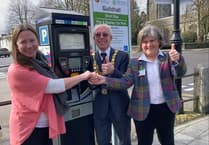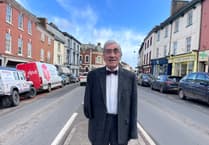PARISHIONERS of St Andrew's Church in South Tawton will have a warmer worship this winter, thanks to a pilot scheme of hot cushions.
The church has been given 50 cushions to trial by the Diocese of Exeter, with the aim of keeping worshippers warm and comfortable during services.
The church is one of two in Devon to take part in the trial, alongside a church in Broadclyst.
The pilot is part of the Diocese's Shrinking the Footprint campaign to reduce their carbon emissions.
The cushion scheme is part of a plan to find new and efficient heating systems for church buildings.
Each cushion contains a chemically triggered re-heatable pad which stays warm for up to 90 minutes.
Each cushion can be held or sat on in the pews.
After the service, the pad is boiled in water for five minutes for future use, and can be reheated up to 1,000 times.
The scheme started on Sunday, November 3 and will be in use until the end of January.
During the pilot, churchgoers will be encouraged to test out the cushions and if successful, the project may be rolled out across Devon.
Martyn Goss, environmental officer for the Diocese of Exeter, said: 'We held an energy conference in July, and part of the aim of that was to try and help churches forward with their heating and reducing both bills and energy use.
'There are various evolving technologies, like solar, and even biomass heaters that some churches are now using.
'There are various ideas for different types of churches. The drift is that for some churches which aren't necessarily used regularly, you need to heat the people in the church, not the building itself.
'These cushions would not be the answer for every church, but for some Dartmoor churches, it could be effective.
'In the long term, anything like this could help save electricity and energy.
'Some churches are very expensive to heat, burning oil. For some churches, schemes like this make economic sense.
'We have had a couple of comments, not from South Tawton but from other places that are very happy with the schemes. We will trial it for the three months, and see if it is effective.'



